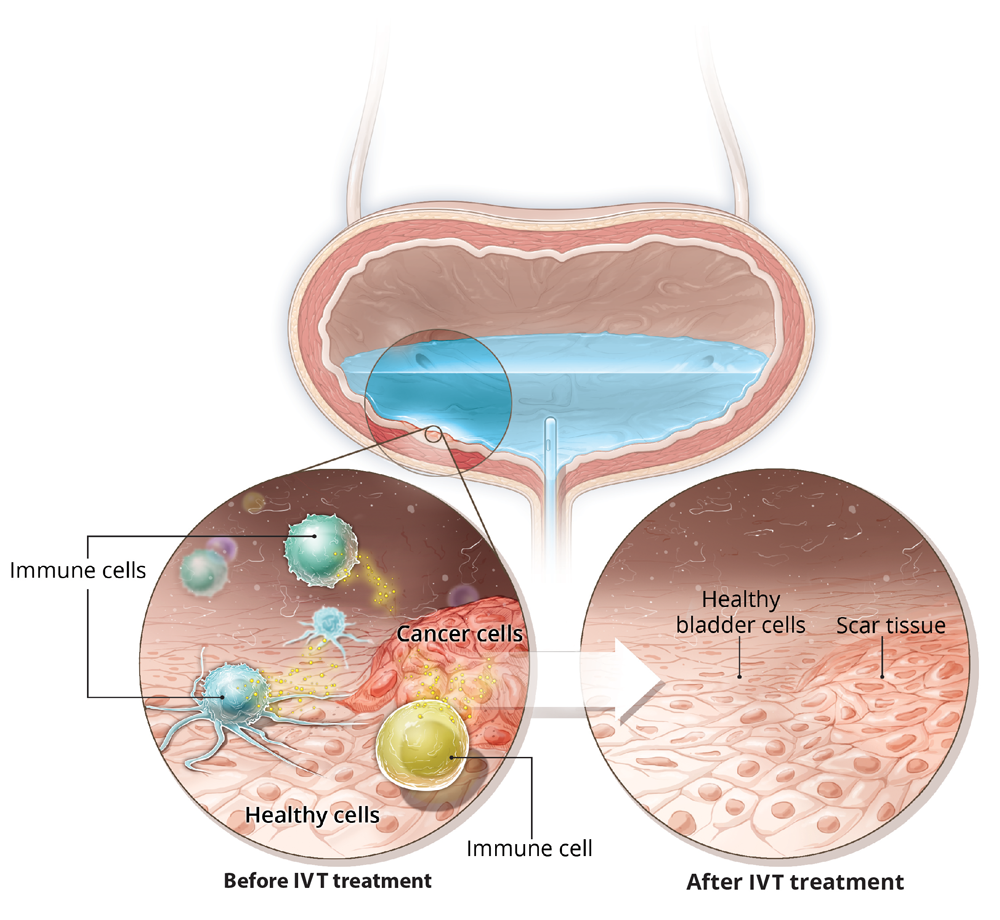This treatment delivers medication directly to the bladder
Intravesical therapy (IVT) is a procedure that places liquid anti-cancer medication into your bladder through a catheter rather than giving it by mouth or injecting it into your bloodstream. The main advantage of this method is that the drugs can directly affect the cells within the bladder without circulating through your body and causing major side effects. Once the medication is delivered into your bladder, you will need to be able to hold it in (without urinating) for a couple hours.
Intravesical therapy is typically performed about three to six weeks after transurethral surgery, such as Transurethral Resection of Bladder Tumor (TURBT). This allows time for the wound from the tumor removal to heal.
What types of drugs are used?
Depending on your individual diagnosis, your oncologist may recommend one of these approaches:
- Chemotherapy IVT that uses a liquid chemotherapy drug such as mitomycin C, gemcitabine or valrubicin.
- Immunotherapy IVT that uses Bacillus Calmentte-Guerin (BCG), an immunotherapy drug that is a weakened, non-infectious form of the bacteria that causes tuberculosis. Placing BCG directly into the bladder triggers your immune system to attack the cancer cells and may stop their future growth, too. BCG treatment may be repeated once a week for six weeks followed by monthly maintenance treatment for up to three years.
- New agents in clinical trials.
BCG Treatment App
If you are considering or undergoing BCG treatment, you can download a self-education tool to help understand your diagnosis and treatment options. The BCG Treatment app is available for free through iTunes and Google Play.
